Kids who Play the Blame Game Lose
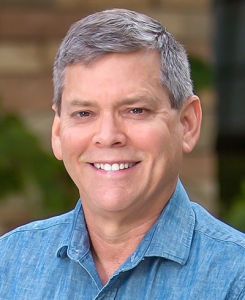
Some children have a problem blaming others and not taking responsibility for their part of the problem. In the child’s imagination, it’s always someone else’s fault. These children have the ability to see all kinds of reasons why an offense occurs but can’t see their own part in it.
When children excuse themselves by blaming others they miss the point of correction, not seeing correction as a gift and justify their poor responses. Underlying their thinking is often a misbelief that correction reveals that they’re inadequate, unworthy, or even stupid. This misunderstanding of correction often hinders significant progress. After all, one of the ways we learn something is through correction.
The Value of Taking Responsibility
Admitting your fault in a given situation isn’t optional. In fact, taking responsibility for your part of the problem is the first step toward improvement. We would suggest you clearly ask a child, “What did you do wrong?” Ask in a gentle way, not accusing. This allows your child to admit what he or she did wrong. The Bible calls it confession. Children must take responsibility for their part of the problem in order for change to take place.
Unfortunately, many parents encourage their children to defend themselves or blame others because of the way they approach the confrontation. When you enter a room and ask the question, “What happened here?” or “Who started it?” you are encouraging kids to rationalize, justify, blame, or defend their actions.
It’s much more effective to have children evaluate their own part of the problem. Even if a child views himself as a victim, his response to that situation is still important. Kids who lash out because they believe that they’re right often justify unwise responses to conflict. Your job is to help your kids see that their responses are important whether they were wronged or not and to teach kids to control their anger not vent it.
Of course some children won’t want to admit what they did wrong. In that case it’s best to have them sit down somewhere for a while until they’re ready. Taking responsibility isn’t optional. If a child has forgotten or is unclear as to what the offense is, then you can clarify it, but don’t just have your child agree and go on. Ask the question again. It’s important for children to admit what they did wrong, and verbally saying it is part of the change process.
The reality is that most situations have multiple factors that contribute to the conflict. Children have an ability to focus on all of the other factors except their own. If others were involved, as they often are, a child should not excuse misbehavior by blaming someone else. The foolishness of others doesn’t justify a wrong response. All children need to take responsibility for their part of the problem.
A common mistake parents make is to engage in dialogue about the whole situation, trying to figure out who else was wrong, what was fair, or why such things happen. Those questions may be helpful at times, but you’ll get much further in helping your children change their hearts if you start by asking “What did you do wrong?” Most children don’t like to admit their faults so working on this during each correction time builds the character necessary for growth.
Your simple question can help children see their own mistakes and learn to take responsibility for them. When two children are fighting, for example, be careful not to focus on just one child’s offense or who started it. Usually when two children are fighting you have two selfish children. Work with the kids individually and ask each of them this simple question. Teach the offended child how to respond properly.
Confession is a Spiritual Issue
Confession is a spiritual skill. It’s God’s first step toward change. The Bible instructs adults to confess their sins one to another. James 5:16 says, “Therefore confess your sins to each other and pray for each other so that you may be healed.”
God, of course, requires confession in order for us to receive forgiveness. He says in 1 John 1:9, “If we confess our sins, he is faithful and just and will forgive us our sins and purify us from all unrighteousness.” People who confess are empowered to change. Confession does something to a person. It somehow makes their offense more obvious. Confession also teaches humility, an important quality for change.
Kids have a way of justifying themselves or rationalizing because someone else did something. Although that may be true, confession helps children see that they had a part in the problem as well. Confession is God’s idea and a necessary part of the change process.
Taking Responsibility is Empowering
Those who blame others continually view themselves as victims, always focusing on others’ responsibility and ultimately feeling helpless. In fact, the blamer believes that his happiness is determined by others’ actions. This victim-mentality leaves a person feeling hopeless, continually complaining about life’s problems. A person who takes responsibility for his part of an offense is empowered to change because he recognizes his contribution to the problem, and also to the possible solution.
Refusing to allow blaming and requiring children to take personal responsibility prepares a child to think rightly about offenses. Instead of beating oneself up by saying, “I’m such an idiot,” or “I’m never going to get this right,” it would be better to simply admit fault, learn from it, and go on.
Lasting change takes place in the heart. Sometimes a child becomes self-protective and lacks the humility necessary for change to take place. Having a simple routine in place for processing offenses can go a long way to develop right thinking about mistakes. All of this can start with a great introductory question, “What did you do wrong?”
The idea of Transferring Responsibility to the Child is a pillar of a heart-based approach to parenting as taught by Dr. Scott Turansky and Joanne Miller, RN, BSN. You can see more examples of this approach to parenting at ThrivingKidsConnection.com
Listen to Dr Turansky’s podcast on Solutions for the Blame Game.
Watch the FaceBook live post:

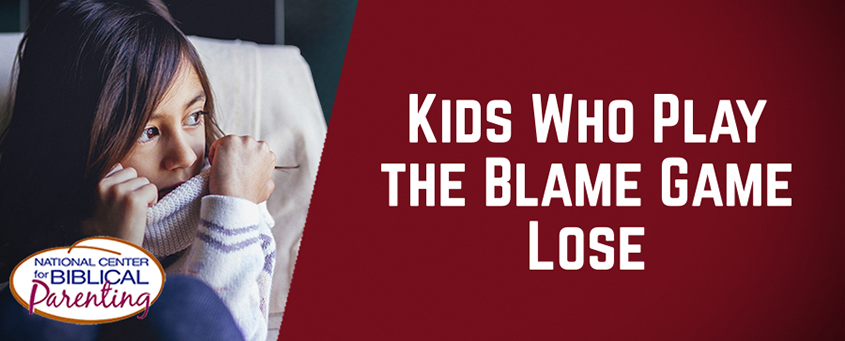

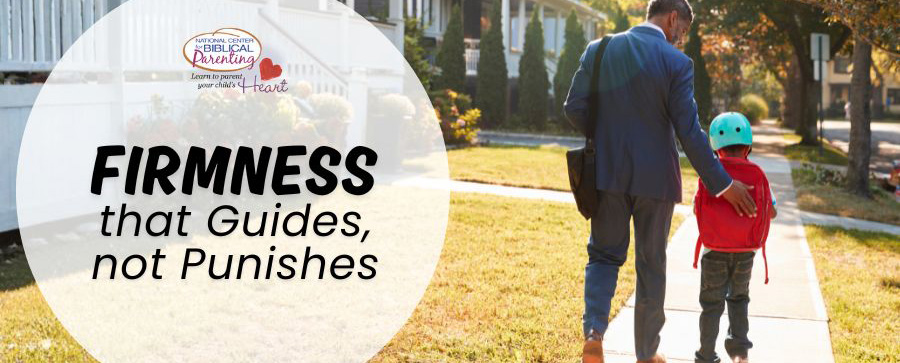
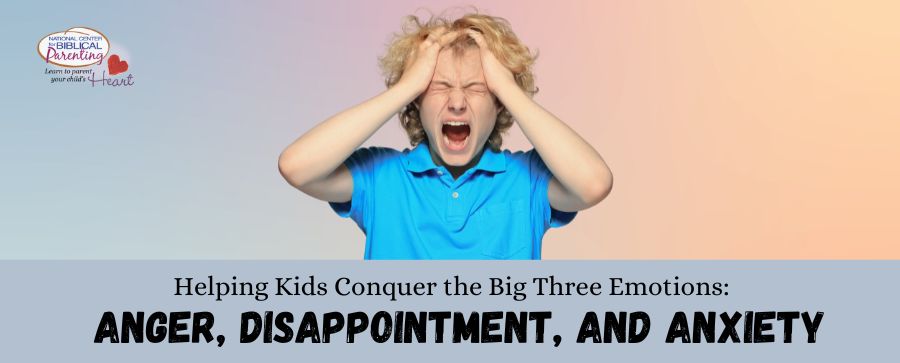
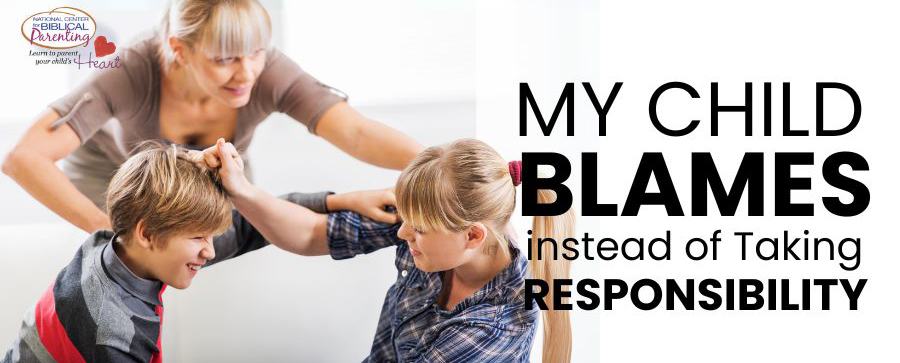

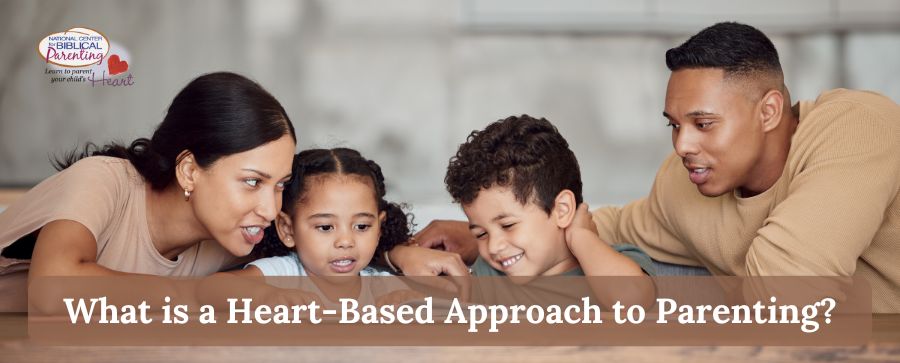
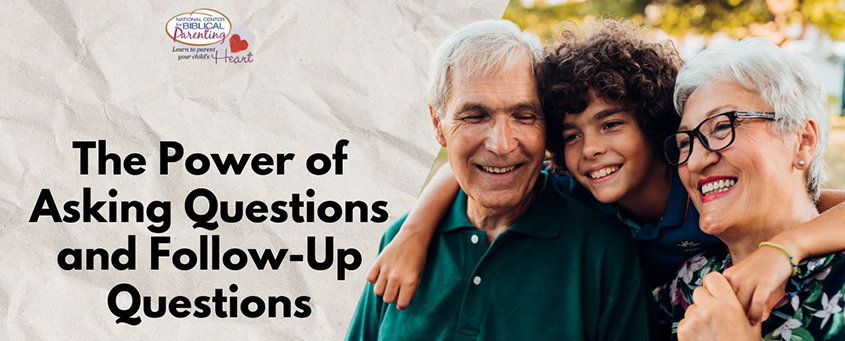

Leave a Reply
Want to join the discussion?Feel free to contribute!